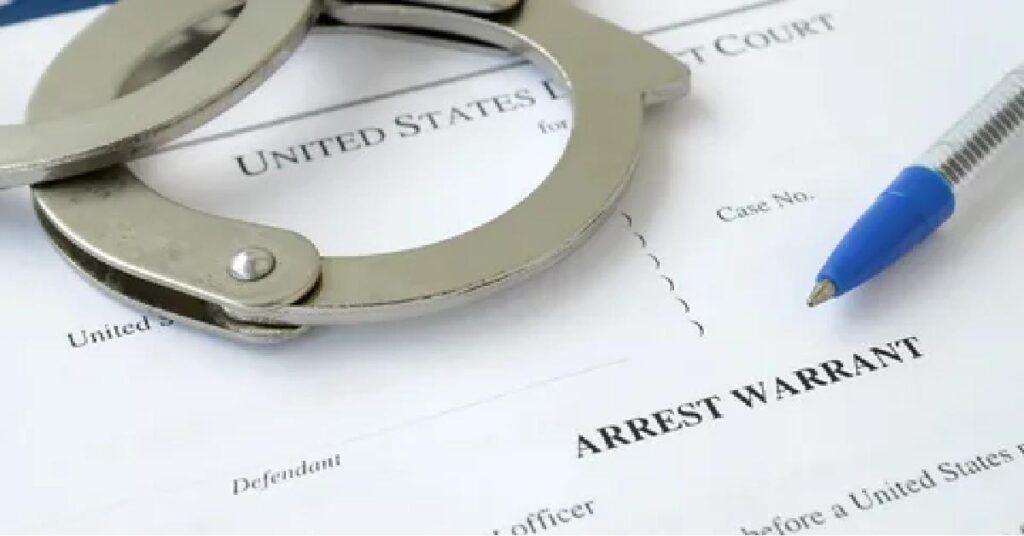How Can I Find Out If Someone Has A Warrant?
How to find out if someone has a warrant? As it can be a severe problem. Having an arrest warrant can create issues in various situations and missing court dates can lead to criminal offenses. Therefore, today in this blog post, we will share a comprehensive guide on “How to Check If Someone Has a Warrant”. In some cases, a person may have a warrant without even knowing it which has a risk of custody at any time. No matter, whether the person is in the office, in traffic, or at home thus dealing with maturity will help to avoid any accumulating fines or complications. However, some ways are available that may help a person to resolve these types of issues. Understanding how can I find out if someone has a warrant and act smartly could save many hassles on the way.
Understanding of Warrant Arrest:
- How to find out if someone has a warrant? That person may search some government websites, check public records, call a court clerk, or use a third-party online service to figure it out.
- Study its details including date of offense, case type, warrant issued date, and discover the bail amount also.
- Dealing with warrants as soon as possible if necessary, go to the court clerk to escape any further penalties and contact an attorney.
First Step: Searching the Arrest Warrant:
- Investigate Official Government Websites:
The first step, how to check if someone has a warrant or not is through checking the government website. Searching for state, city, and country’s official websites will provide reliable information as these websites are up-to-date and authentic.
- Usually, every government website ends with .gov or.us.
- Search for health & safety or legal section to see whether they offer warrant search or not.
- Searching the phrase “arrest warrant” in the search bar will provide many websites as a result.
- However, some countries don’t have online warrant searches. If that is the case for you then look for local police department websites for further information.
- Reach out the Court Clerk:
If you need face-to-face guidance then call the court clerk directly. Country court maintains all warrant databases therefore court clerks may identify your case too. Or any person may ask them by using a person’s name, they will search and find out whether they have a criminal record or any civil cases or not. If you have some information like a person’s name, date of birth, and social security number, the search will get easier.
- Some court clerks may not be able to proceed because your specific information is in a different circuit court.
- Some cases are not accessible through court clerks such as juvenile delinquency and family domestic violence cases. Because they involve further complications like peace, restraining, and protective orders. Still, some clerks may give information about an arrest warrant.
- However, if the case is in the criminal domain, you should not have any problem finding its information. Generally, these cases contain public records. On the other hand, civil cases don’t have public records as they deal with family, domestic violence or juvenile delinquency cases. These cases are handled by an attorney or bail bondsman.
- Call from your phone can expose your location and number, police may even arrest you. Therefore, using other numbers is a smart option.
- Search for Public Records in Country Court:
You may use a computer via the internet and search for warrants. If you are not aware of doing so or are not comfortable, you may ask someone to do it for you.
- Mostly minor offenses are not applicable immediately to arrest, paying fine payment and fixing quickly is an option for them.
- Be aware, that a warrant for an adult will increase the chance of being arrested or taken the custody as soon as possible.
- Use Third-Party Services:
Some websites are available to provide warrant search, some are free to use and others may charge an amount.
- Third-party services may provide easy and quick information but not all of it. For instance, it may provide important statistics without a deep reason for an arrest warrant.
Second Step: Deep Details:
- Warrant Issued Date:
Many times people don’t even know they have an arrest warrant. Knowing how to find if someone has a warrant or how to check if someone has a warrant is important. Further knowing the actual reasons for the warrant will unravel more deep details.
- Some charges or fines may be associated with your warrant which may accumulate from the date of warrant issued.
- Additionally, in some cases which was issued a few years ago that person can’t pursue for crime. It means this warrant is not expired but has limitations. An arrest warrant for 2 years would have a valid duration.
- Inquire of Charges:
Knowing the exact charge will provide an adequate response. Important information includes details of charges, type of case, and date of offense.
- Paying fines or charges will avoid being arrested in some cases.
- The seriousness of your allegation may affect the selection of legal representation.
- Figure the date of conviction, disposition, sentencing, and probation if required.
- Watch the Bail Amount:
The concern of going to jail can be avoided by paying the bail amount, it will help in your trial as well.
Step 3: Responding to a Warrant:
- Respond quickly:
Regardless of what charge a person has, he should respond as soon as possible. Working in a proactive approach will help to avoid public arrests at inopportune times.
- Contact Attorney:
An arrest warrant for some major offense will need a criminal defense lawyer. This attorney may help to understand the legal allegation and will suggest possible solutions. Further, they inquire the local court to get the warrant number and other related information.
- An attorney who may deal with criminal cases.
- Don’t go for the first attorney, instead choose someone who is associated with your situation and has a good reputation.
- Some website also provides attorneys.
- Meet with them before the appointment.
- If you feel comfortable then explain the situation thoroughly.
- Involve Yourself:
Get involved in the process for a smooth and risk-free case.
- Going to a court clerk, asking for information, and knowing the step-by-step instructions will help even more.
- Involving a legal representation or attorney for advice will avoid minor charges and misdemeanors.
- Avoid going to the police station, as they could directly take you to jail till appointed form the court.
- Then court will appoint an attorney for you.
- Never Ignore a Warrant:
It will only have a negative impact, in case you get a charge then the process will proceed in more speed or you may be arrested on the spot.
Frequently Asked Questions FAQs on How to Find Someone Has A Warrant:
1. What are warrants?
An arrest warrant is a legal document that is issued by the authorized judge or magistrate on any specific action.
2. How can I find out if someone has a warrant or not?
Visiting a government website and local court will provide information. Third-party services or contacting a bail bondsman may also provide some information.
3. Are warrant-related records accessible to the public?
Many warrants are accessible for public record but the availability depends on jurisdiction.
4. Can I search a warrant for someone without him knowing?
Yes, anyone can investigate warrants for someone without the person knowing through public records or online databases.
5 What should a person do when he finds out a warrant for someone?
After discovering warrants advise them to contact any legal advisor or attorney. They will further guide you to avoid any risks.
.









